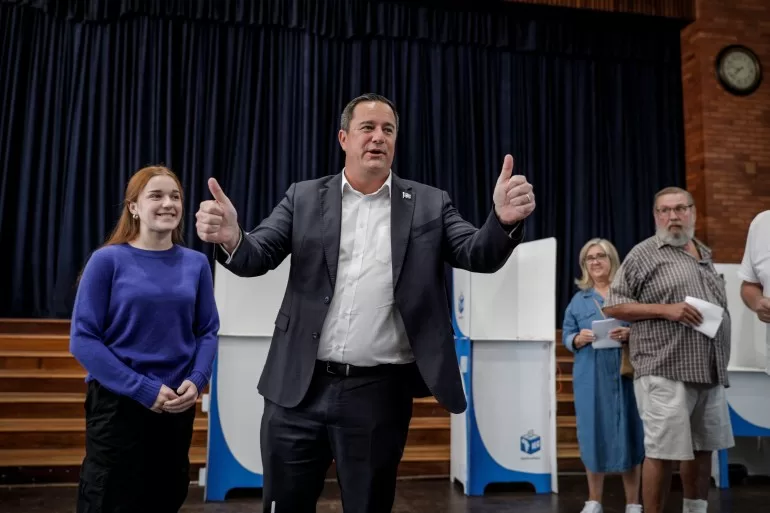National unity government formed following weeks of deadlock.
President Cyril Ramaphosa named 32 ministerial positions of the government of national unity late on Sunday, following weeks of deadlock that delayed the formation of an historic governing coalition.
The announcement sees 20 of the 32 posts going to the ANC. Another six will be filled by the Democratic Alliance (DA) party, with the remainder split among a crowd of smaller coalition parties.
Ramasopha was forced into the unprecedented power-sharing arrangement with DA and others after his party, a dominant force in South African politics since the end of the apartheid era, lost its parliamentary majority for the first time since 1994 in elections on May 29.
Accustomed to comfortable victories of more than 60 percent, the ANC won just 40 percent of the vote in the May 29 election, as South Africans turned away from the party amid frustration over poverty, poor services, and some of the world’s highest rates of inequality and unemployment. The rival DA took the second-largest share with 21 percent.
Ramaphosa said Sunday that those issues would be priorities for the new government.
“We have shown that there are no problems that are too difficult or too intractable that they cannot be solved through dialogue,” said Ramaphosa.
‘Major shake-up’
It took more than a month of complex political manoeuvring, and concessions from the ANC, to piece together the government.
In a nod to the DA, its leader John Steenhuisen was appointed minister of agriculture.
At the same time, Ramaphosa maintained the ANC’s hold on the ministry of trade and industry, a key portfolio that the DA was also seeking. The ANC’s Paul Mashatile will also continue as deputy president.
Steenhuisen, in a statement following the announcement, said: “We look forward to being part of a new era in South Africa’s democratic journey, and to bringing real and tangible change to the millions of citizens who voted for it.”

Melanie Verwoerd, political analyst and former South African diplomat, told the Reuters news agency that the overhaul would help open up the political scene to new leaders and encourage compromise.
“It is a major shake-up with very few of the old faces still in there, which is a good thing,” said Verwoerd. “I think in general it’s a very positive step and of course very positive that they could actually get this done.”
What’s next?
Whether the current loose coalition of former enemies can improve on the ANC’s record may depend on the extent to which they can put aside their ideological differences.
The DA wants to scrap some of the ANC’s black empowerment programmes, saying that they have mostly made a politically connected business elite fabulously wealthy, and scrap the minimum wage.
It also opposes the ANC’s desire to expropriate land – most of which is in white hands as a legacy of conquest by colonists and subsequent entrenched white minority rule – without compensation and give it to black farmers.
